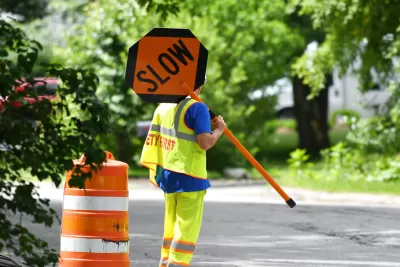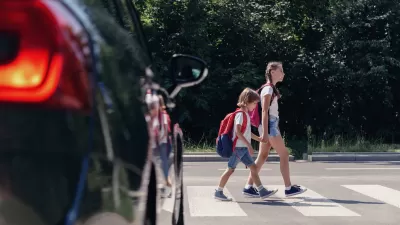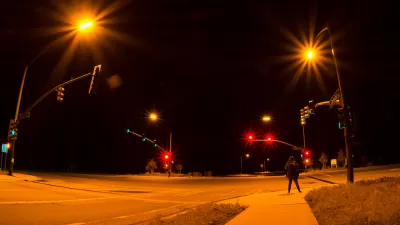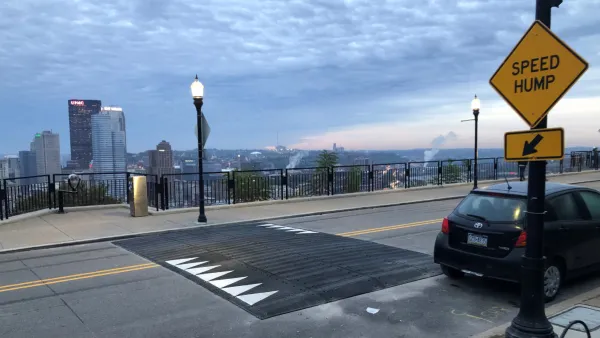The federal manual governing road design is getting an update. Will it encourage real progress toward road safety?

A post on the National Association of City Transportation Officials (NACTO) website outlines the key reforms the organization is looking for in the newly revised Manual on Uniform Traffic Control Devices (MUTCD), the federal document that dictates how roads are built in the United States.
For many safe streets advocates, the MUTCD is uniquely responsible for the unsafe design of many American roads, where over 40,000 people lose their lives each year. As NACTO points out, “The MUTCD governs all road markings, stop signs, and traffic lights in the U.S., and prioritizes moving vehicles quickly at the expense of safety, sustainability, and accessibility for people walking, biking, using a wheelchair, or riding transit.”
Some of the changes NACTO hopes for in the new MUTCD, which will be released after a review by the Office of Management and Budget (OMB), include:
- Elevating safety and implementing a ‘safe systems’ approach
- Eliminating the 85th percentile rule and other free-flow speeds in setting speed limits.
- Reforming regulations for signals to make street crossings safer for pedestrians.
- Removing the manual’s new proposed chapter on autonomous vehicles, which, according to NACTO, “absolves AV companies of the responsibility to build vehicles that keep road users safe within the existing transportation network.”
- Removing unnecessary restrictions on the use of paint for bus lanes, bike lanes, and crosswalks; and eliminating design restrictions for urban bikeways that conflict with data on bike safety.
FULL STORY: It’s Time to Reshape the Federal Document That Shapes Our Streets: The MUTCD

Planetizen Federal Action Tracker
A weekly monitor of how Trump’s orders and actions are impacting planners and planning in America.

Congressman Proposes Bill to Rename DC Metro “Trump Train”
The Make Autorail Great Again Act would withhold federal funding to the system until the Washington Metropolitan Area Transit Authority (WMATA), rebrands as the Washington Metropolitan Authority for Greater Access (WMAGA).

DARTSpace Platform Streamlines Dallas TOD Application Process
The Dallas transit agency hopes a shorter permitting timeline will boost transit-oriented development around rail stations.

Supreme Court Ruling in Pipeline Case Guts Federal Environmental Law
The decision limits the scope of a federal law that mandates extensive environmental impact reviews of energy, infrastructure, and transportation projects.

Texas State Bills to Defund Dallas Transit Die
DART would have seen a 30% service cut, $230M annual losses had the bills survived.

Bikeshare for the Win: Team Pedals to London Cricket Match, Beats Rivals Stuck in Traffic
While their opponents sat in gridlock, England's national cricket team hopped Lime bikes, riding to a 3-0 victory.
Urban Design for Planners 1: Software Tools
This six-course series explores essential urban design concepts using open source software and equips planners with the tools they need to participate fully in the urban design process.
Planning for Universal Design
Learn the tools for implementing Universal Design in planning regulations.
Roanoke Valley-Alleghany Regional Commission
City of Mt Shasta
City of Camden Redevelopment Agency
City of Astoria
Transportation Research & Education Center (TREC) at Portland State University
US High Speed Rail Association
City of Camden Redevelopment Agency
Municipality of Princeton (NJ)





























